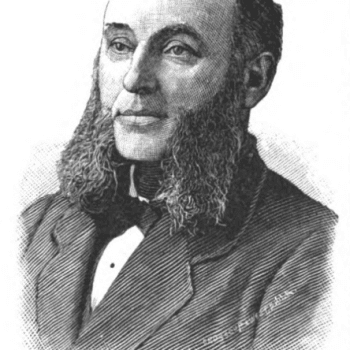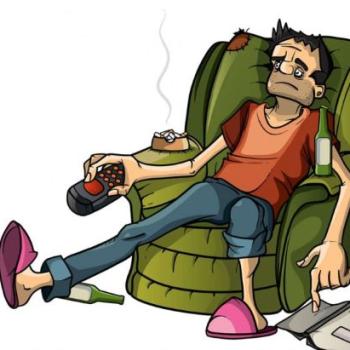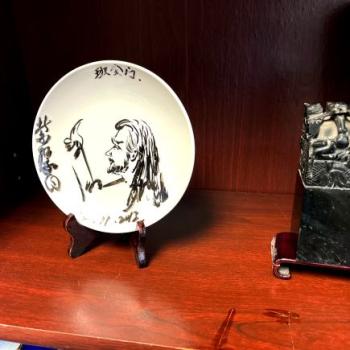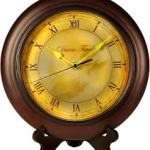“You Have Too Much… Character”
We’ve all worked with and for people who either rub us the wrong way or that we love to be around. Many times, the people we gravitate toward have the same character we do. But what does having character mean? And why is having a good character important?
When I was a much younger singer in the world of opera, I would do audition after audition after audition in hopes of landing one or two roles with companies anywhere in the world. During an audition, you put yourself out there. You are completely vulnerable to everyone in the room. Your looks, size, age, and deportment are being judged before you even open your mouth to sing. Then, when you finally are able to show what you have to offer, you are judged, compared, and ranked like a prime piece of USDA prime beef or scrapple.
The only thing you truly have that no one can take from you when you walk into that room is your character. Your preparation, your voice, your interpretation—these are all open for comment. But who you are and what you’re made of are yours and yours alone.

A Little Story
I had heard that several of the heads of the companies I would be singing for were not known for having good character. They were users and abusers of their singers and their staff, but people wanted to work for them because they were movers and shakers in the industry. It was a known “Ya gotta dance with the devil to make your break” sort of attitude. I went into one audition in particular and sang very well; one of the best auditions I had done that year. I sang one, two, three, four arias and was sure that I had impressed and that I would get the job. I left, did other auditions, and got a couple of jobs from the week, but I never heard from that one company in which I knew I’d killed it.
The next year, I sang for the same head of company and, again, nailed the audition. It was an audition for a role in a show that I was quickly becoming known for, and again, I knew that there was no way I could be denied the job for the upcoming season. But time went by, and I saw they hired a different person for the role that I knew should be mine.
The following year, I really didn’t want to audition for this particular head of company. There was some impediment that they couldn’t see through to put me in the roles that I was well-suited, well-voiced, and tailor-made for. But a friend with whom I had sung many roles talked me into doing the audition anyway. For the third time, I killed the audition. Everything went right. My voice was full and rich, the accompanist followed me to the letter, and the high notes shimmered. This time the head of company wanted to chat after the audition. They were very cordial and complimentary to my singing, acting, and characterization. I thanked them for the compliments and waited for the job offer to be given. What they said next stopped me cold.
With a big smile, the head of the company handed my CV and head shot back to me and said, “You’d be perfect for the role this year. Well, for that matter, you were perfect for the roles for the last couple years. But I can’t hire you.”
I didn’t think I heard them correctly. They said I’d be perfect and was perfect for the roles in the company. The head of the company put their hand on my bicep and squeezed tightly then rubbed my arm. “I can’t hire you because I can’t sleep with you. The word is you have too much…” they paused, “character.” They patted my arm and went back to their table.
Years later, this very same company head was driven out of the industry because people would no longer tolerate the degrading terms they insisted upon and the laws they flagrantly broke. As a part of this person’s character, they did not apologize for their actions. No, instead, they wore their immoralities as battle trophies. They tried to portray themselves as the victim. They held no regard for those they had they had damaged or abused in the past, either verbally, mentally, or sometimes physically. They had a justification for every wrong they ever committed and stuck to their stories, even when proven by the opera community that they were categorically in the wrong.

What is Character?
So, what is character? Do you have to come off as a “Holy Joe” to say you have character? No. It’s simply having principles. It’s having a good sense of moral value. It’s having an ethical standard. It’s doing the right thing when no one is looking. We don’t just wake up one day and say, “I think I’ll be a moral and upstanding person today.” No. It’s a practice that takes time and energy.
It starts with giving a good look at who you are and what you stand for. Showing you have good character today is at an all-time low. We see and hear politicians and business leaders say one thing and do exactly the opposite all the time. But if you look at history, you’ll find that there have always been people in power who have had low character—Nero, Napoleon, Hitler to name a few.
Once you have looked inward and given yourself a good evaluation, it’s time to look for role models of who and what you want to become. This is a very important step! You must look at the role model’s moral character over all else—not looks, money, or wit, but moral character. I think most reading this will agree that emulating Mother Therese would be much better than Kanye West.
Then, study a bit and put into action what you learn. What makes a good moral character? What things should I do? What things should I avoid? If I go from being Dr. Jekyll to Mr. Hyde when I drink alcohol, then I avoid bars, raves, and friends that encourage me to drink. Does it mean I might lose friends? Yup. Does it mean I might have to find new things to do, new hobbies, and ways of finding fun? Absolutely. So why should I change? I’m losing all the fun stuff!
Three words: personal inner peace. I don’t know a single person who has a low moral character that truly sleeps well at night. They are always restless, trying to remember what lie they told so they can cover their tracks when needed, and always looking for the next sucker.
Enhancing your own moral character doesn’t mean you become the morality police. You become aware of others’ foibles and try to either help them find a bit of character or wish them well, shake the dust from your sandals, and go your own way. We are all on the same journey, and we will all come to the truth and be judged in our own time. Moral character is a personal journey, and those with it are known not by their words but by their actions. So today, I have a little test for you to take. Who are the top 10 people you admire throughout history? Write them down. I’ll wait…
Okay. Now, by each name write down three things that shows their character—good or bad—and answer why you admire that trait. Now, cut your list down to five by asking, “What are the top three things that made them stand out as an upright person?” Then write down why you admire that trait. You’ll begin to see what your character is by looking at who you admire and why. Again, I’ll wait…
Last cut, promise. I want you to cut the list down to three. This time you ask, “Come hell or high water, who stuck to what they thought to be morally correct?” Then write down what was so moral about their decisions.
Now, look at your list. Are these three people in history, someone you truly can admire? Do you wish to have people think of you in the same light as those upright people? Do you see yourself to be as morally correct as these three people? If the answer is, “No,” try the exercise again and see if you can raise your personal bar. If the answer is, “Yes,” then you have found people to model after and emulate.
Character is a funny thing. We become what we have been raised to become. If we want to change for the better, we must find the right model to emulate.

















